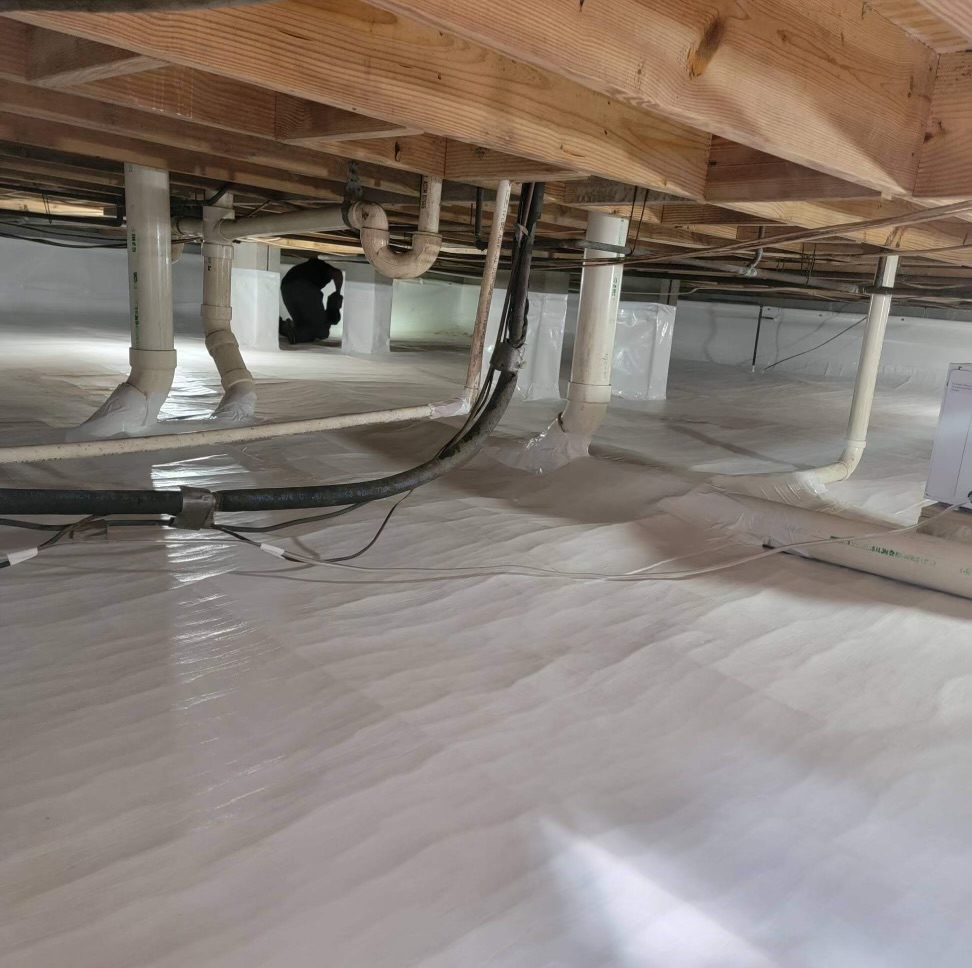
When people think about making their homes healthier and saving money on energy, they often think of new windows, better insulation, or even smart thermostats. But there’s a critical part of your home that many people forget — the foundation. Sealing your home’s foundation is one of the best ways to improve indoor air quality and energy efficiency, especially in a humid climate like Savannah, GA. Let’s break this down into simple terms and see why sealing your home’s foundation matters and how it can make your living space safer, cleaner, and more comfortable.
What Does It Mean to Seal Your Foundation?
Your home’s foundation is the bottom of your house that touches the ground. It supports everything above it — the walls, the floors, and the roof. Many homes, especially older ones, have small cracks, gaps, or holes in the foundation. These can let in water, air, dirt, bugs, and mold. Sealing the foundation means closing gaps and cracks so outside elements can’t penetrate your home. This can involve using waterproof materials, special sealants, or barriers to keep moisture out.
Why It Matters in Savannah, GA
Savannah has a warm, humid climate, especially during the summer. That means your foundation is at risk for moisture problems all year long. Moist air can creep into your crawl space or basement through unsealed areas. Over time, this moisture can create mold, mildew, and unpleasant smells inside your home. In places like Savannah, sealing the foundation can make a big difference in protecting your home from humidity-related damage and improving the air quality. If you want to seal and secure your home, addressing these moisture issues early is key to long-term comfort and protection.
How Sealing Helps Improve Air Quality
Let’s face it — nobody wants to breathe in moldy, dusty, or musty air. But that’s exactly what can happen when your foundation isn’t sealed properly. Here’s how sealing your home’s foundation can lead to cleaner, fresher air indoors:
- Stops Mold Growth: Moisture is the perfect ingredient for mold. When mold grows in your crawl space or basement, tiny spores can travel through your home’s air. These spores are not good for your lungs and can cause allergies, breathing problems, or asthma attacks. Sealing the foundation keeps that moisture out, which means mold doesn’t have a chance to grow.
- Blocks Dirty Air from Entering: An unsealed foundation lets in outside air—and with it, all kinds of things like pollen, dirt, dust, and even car exhaust from the street. Once this air gets in, it can spread throughout your entire home. Sealing the foundation blocks these unwanted particles, giving you cleaner indoor air.
- Keeps Out Pests: Insects and rodents love to sneak into homes through small cracks in the foundation. These pests leave droppings, dander, and bacteria behind, which lowers indoor air quality. A sealed foundation keeps these unwanted guests out.
How Sealing Saves Energy and Lowers Bills
Sealing your foundation doesn’t just keep the air clean — it also helps keep your energy bills low. Here’s how:
Keeps Warm and Cool Air Inside
When you run your heater or air conditioner, you want that air to stay inside, right? But when there are leaks in the foundation, your warm or cool air escapes. That means your HVAC system has to work harder to keep your home comfortable, using more energy. A sealed foundation keeps your inside air where it belongs — in your home — so your heating and cooling system doesn’t have to work overtime.
Helps Insulation Work Better
If your foundation isn’t sealed, even the best insulation in the world won’t help much. Air and moisture from outside can still get in and ruin everything. But when you seal your foundation, your insulation can do its job better, helping to keep your home at the perfect temperature all year.
Reduces Wear on HVAC Equipment
When your HVAC system runs too often, it wears out faster. That means you’ll need repairs more often and may even have to replace it sooner than expected. By sealing your foundation, you reduce the frequency of your system’s runs, helping it last longer and saving you money in the long run.
When Should You Seal Your Foundation?
If you live in an older home or notice any of the following problems, it’s a good time to seal your foundation:
- You smell musty or damp odors inside your house.
- You see cracks in your foundation or basement walls.
- You notice mold or mildew, especially in the lower parts of your home.
- Your energy bills are higher than usual.
- You feel drafts even when windows and doors are closed.
- You spot bugs or rodents in your crawl space or basement.
These signs mean that outside air and moisture are likely sneaking in. The sooner you seal your foundation, the better off your home will be.
Conclusion
Sealing your foundation is a smart, simple way to boost air quality and cut energy bills, especially in humid Savannah. Keeping moisture and outside air out improves comfort and health. For expert help, contact Healthy Crawlspace. Their local team knows the unique challenges of Savannah homes and can seal your foundation properly. With their help, you’ll enjoy a cleaner, safer, and more energy-efficient home year-round. Ready to seal and secure your home? Trust the pros at Healthy Crawlspace to get the job done right.




